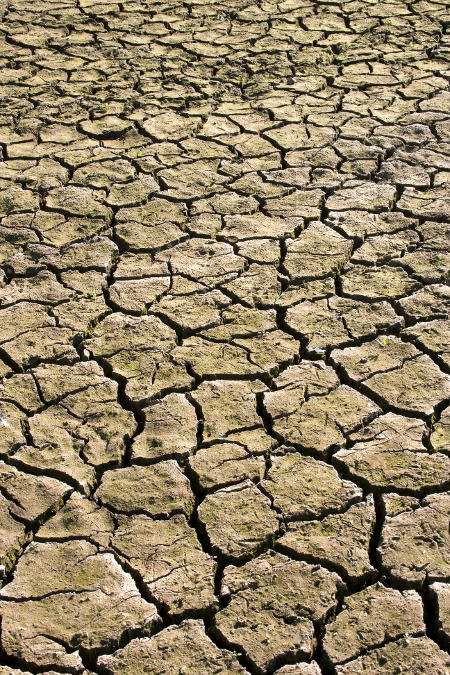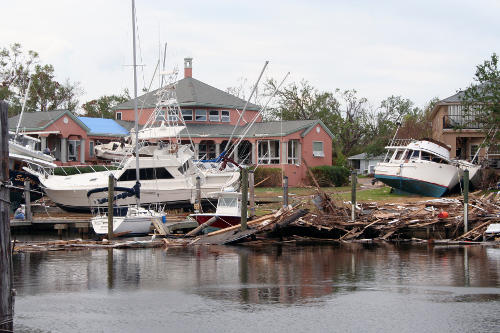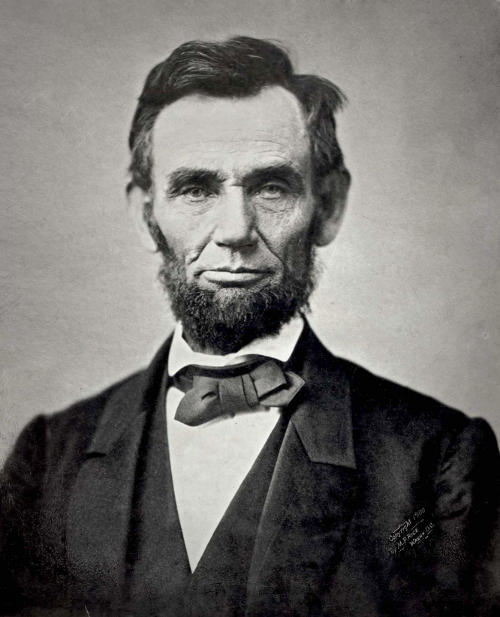A Pepper Grinder Post
How to React to a Disaster
“During the reign of David, there was a famine for three successive years; so David sought the face of the LORD. The LORD said, "It is on account of Saul and his blood-stained house; it is because he put the Gibeonites to death." (2 Samuel 21:1 NIV)
 I can’t help wondering how the same scene would play out now. Actually, I don’t really have to wonder. Take the recent drought in California, for example. What is the cause, according to opinions expressed widely in our society? Climate change caused by people. I don’t think I have heard any other opinion expressed. Maybe some people on the fringe of acceptable scientific opinion would argue that the climate change is caused by natural cyclic processes.
I can’t help wondering how the same scene would play out now. Actually, I don’t really have to wonder. Take the recent drought in California, for example. What is the cause, according to opinions expressed widely in our society? Climate change caused by people. I don’t think I have heard any other opinion expressed. Maybe some people on the fringe of acceptable scientific opinion would argue that the climate change is caused by natural cyclic processes.
What I have not heard is speculation that God might be trying to get the attention of our nation, or California in particular. That’s because people who say things like that are relegated to the ranks of kooks, or even worse, assigned a place with the nasty people who hold up signs at soldiers’ funerals asserting that the soldier being honored is going to hell.
Certainly a common secular opinion about a passage like the one with which we started is that people used to attribute things like famines to divine beings, because they didn’t have the scientific know-how to understand the real causes, or the ability to prevent them. Although many Christians would not accept this reasoning completely, I think it has seeped its way into our brains. We say that the famine in David’s day was caused by God’s displeasure with Saul’s killing of the Gibeonites, but we assume that a famine in northern Africa today is caused by changing weather patterns and fighting war lords.
My question is this: Even if we do correctly understand the natural causes of an event (and I’m not convinced that we always understand the physical world as well as we think we do), is that the complete explanation? It reminds me of a passage in The Voyage of the Dawn Treader (one of the Chronicles of Narnia) by C.S. Lewis, where Eustace (who has received a very modern education) is speaking with Ramandu, who describes himself as “a star at rest.”
“In our world,” said Eustace, “a star is a huge ball of flaming gas.”
“Even in your world, my son, that is not what a star is but only what it is made of.”
I believe there is a stealthy idea, which so often comes along with the scientific explanation, that the natural cause is the ONLY cause. This comes directly from the unprovable belief upon which most modern scientific thought is built, that the material world is all there is. There is no spiritual reality outside of electrical impulses bouncing around our brain cells, and there is no guiding hand. There is only matter, energy, and blind chance.
 So where does this leave the thoughtful Christian? Is he forced to decide between science and what most would see as superstition? Not at all. We can accept scientific findings (if they really are scientific and not just speculations built on presumptions), but we can also know that the divine hand which created the universe still guides it today. We can see that an earthquake is caused by movement of tectonic plates, but we can also ask why God allowed it to happen and what he is trying to say.
So where does this leave the thoughtful Christian? Is he forced to decide between science and what most would see as superstition? Not at all. We can accept scientific findings (if they really are scientific and not just speculations built on presumptions), but we can also know that the divine hand which created the universe still guides it today. We can see that an earthquake is caused by movement of tectonic plates, but we can also ask why God allowed it to happen and what he is trying to say.
Will we always understand why God is doing what he is doing? I certainly don’t think so. This is where Paul’s famous phrase, “but now we see through a glass darkly” applies. (A more modern translation would be something like, “now we only see a dim reflection in a mirror.”) We will not always understand what God is up to, and I am skeptical of people who are quick to speculate about why God does what he does, especially when it is something which affects someone other than the speaker. It is far too easy to sit in our comfortable houses in a stable society and make guesses about why people are dying thousands of miles away.
So what’s the point of asking why something is happening if there is a good chance we won’t get the answer? In a word, humility. By asking the question, we acknowledge that God is the king and is in control of everything which happens. We also open ourselves up to hear God. We may not hear why the people of Haiti were hit with an earthquake AND a hurricane within a relatively brief period of time, but we may hear something about what we should do or what our attitude should be.
Listen to what Jesus said when asked about a calamity:
Now there were some present at that time who told Jesus about the Galileans whose blood Pilate had mixed with their sacrifices. Jesus answered, "Do you think that these Galileans were worse sinners than all the other Galileans because they suffered this way? I tell you, no! But unless you repent, you too will all perish. Or those eighteen who died when the tower in Siloam fell on them--do you think they were more guilty than all the others living in Jerusalem? I tell you, no! But unless you repent, you too will all perish." Luke 13:1-5, NIV
Notice what Jesus does NOT do. He does not explain why God allowed Pilate to kill the Galileans or the tower of Siloam to fall on eighteen people. Instead, he uses these events to get people to look at themselves. Are they living in smug complacency? If they are, they must change. They have to see the world as a place where there is no safety apart from God, and where, in God, there is absolute, ultimate safety. Are they thinking condescending, sneering thoughts about other groups of people (rednecks? California liberals?)? If so, they must look at their own failings and turn to God for forgiveness and restoration.
 We have a choice in reacting to disaster. We can stick with the surface explanations, or we can open ourselves up to the Holy Spirit so he can work in us and bring us closer to God.
We have a choice in reacting to disaster. We can stick with the surface explanations, or we can open ourselves up to the Holy Spirit so he can work in us and bring us closer to God.
In some of the darkest days of the Civil War for the Union government, listen to what Abraham Lincoln said when proclaiming a national day of prayer and humiliation:
And, insomuch as we know that, by His divine law, nations like individuals are subjected to punishments and chastisements in this world, may we not justly fear that the awful calamity of civil war, which now desolates the land, may be but a punishment, inflicted upon us, for our presumptuous sins, to the needful end of our national reformation as a whole People? We have been the recipients of the choicest bounties of Heaven. We have been preserved, these many years, in peace and prosperity. We have grown in numbers, wealth and power, as no other nation has ever grown. But we have forgotten God. We have forgotten the gracious hand which preserved us in peace, and multiplied and enriched and strengthened us; and we have vainly imagined, in the deceitfulness of our hearts, that all these blessings were produced by some superior wisdom and virtue of our own. Intoxicated with unbroken success, we have become too self-sufficient to feel the necessity of redeeming and preserving grace, too proud to pray to the God that made us!
It behooves us then, to humble ourselves before the offended Power, to confess our national sins, and to pray for clemency and forgiveness.
Amen.
- Pepper
Posted 2014-12-11
*Photo Credits: parched earth by Kevin Tuck, hurricane damage by Palmer; Lincoln from wikipedia
